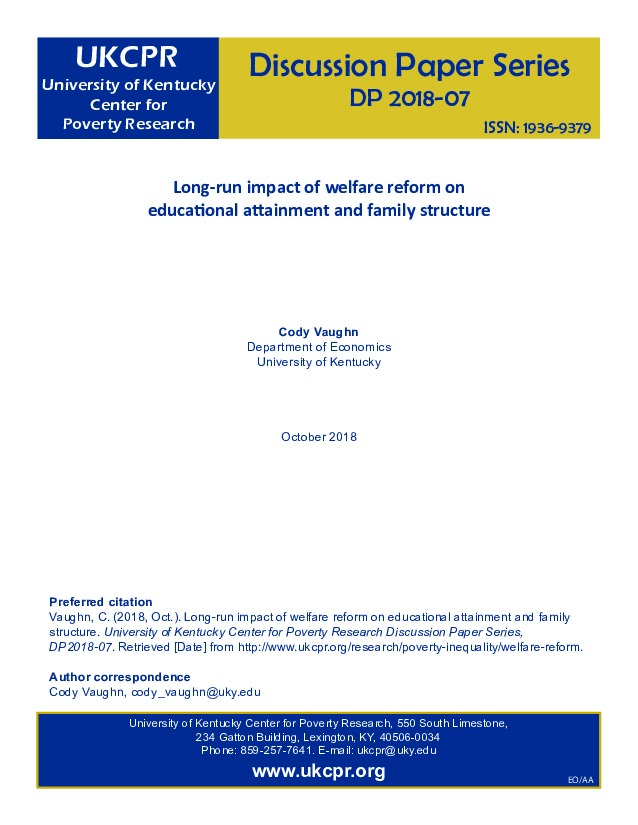In the early 90’s, the United States reformed its welfare system through state waivers and the Temporary Assistance for Needy Families program. These changes altered family resources and potential investments for childhood human capital, which in turn could affect later adult outcomes. Using data from the Panel Study of Income Dynamics, I examine the long-run impact of growing up under welfare reform on adult education and family structure through age 28. I find that as children, these individuals have higher reading test scores by an average of 6% of a standard deviation. As adults, I find robust evidence that these treated individuals are on average 9% more like to graduate college. I find some evidence that they are more likely to be married and less likely to have a child out of wedlock. The effects for women are larger than men for college completion, marriage rates, and out of wedlock births.
Research
Welfare ReformPDF Thumbnail
